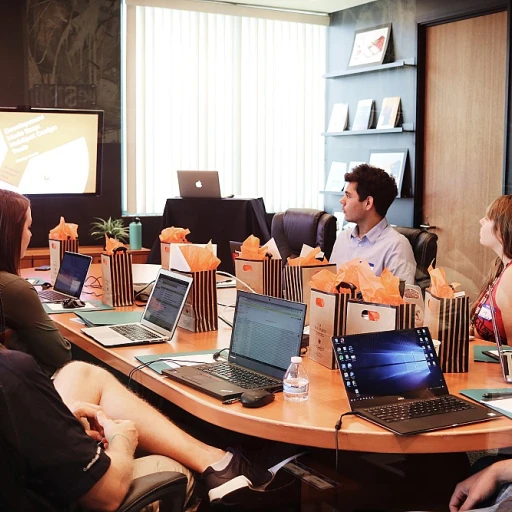
Understanding the Role of an Attendance Manager
The Importance of a Dedicated Attendance Manager
In the bustling work environment of New Zealand companies, an Attendance Manager plays a pivotal role in ensuring that employee attendance is meticulously tracked and managed. This specialized role, integral to maintaining operational efficiency, involves more than just checking time logs or real-time data from a clock system. An Attendance Manager needs to know how to leverage various tools to help track attendance more effectively. Key Responsibilities:- Monitoring Attendance Trends: By evaluating data from attendance tracking systems and apps, the manager can identify patterns, such as frequent late arrivals or absenteeism, which may require intervention or support.
- Implementing Tracking Systems: Introducing a user-friendly mobile app or an efficient time clock system can be beneficial. These tools not only aid in gathering accurate data but also create transparency for staff and management alike.
- Ensuring Privacy Compliance: With an increasing reliance on digital attendance tracking, compliance with privacy policies becomes crucial. An Attendance Manager must ensure that all tools respect user privacy and data security standards.
- Generating Reports: The ability to export attendance data into a CSV file for analysis can provide companies in New Zealand insight into employee trends, which ultimately supports better decision-making.
Challenges Faced by Office Managers in New Zealand
Key Challenges in Monitoring Attendance for New Zealand Offices
Managing employee attendance in New Zealand's dynamic office environment comes with its unique set of challenges. For office managers juggling multiple tasks, the ability to effectively track and manage attendance data can be a daunting task, especially when striving for optimal outcomes in real time environments. Here are some of the core hurdles faced and potential avenues for improvement:
- Diverse Work Arrangements: As more companies embrace flexible work arrangements, including remote location setups and hybrid models, keeping track of employee attendance and time becomes increasingly complex. Utilizing tools like mobile apps and real-time attendance management systems can help bridge gaps and maintain accurate data without compromising privacy.
- Integration with Existing Systems: Many New Zealand offices may already use a variety of systems to manage employee data, user profiles, and performance reviews stars. Ensuring that an attendance tracking system integrates seamlessly with these existing systems can be a considerable challenge. Prioritizing apps developed with integration capabilities and comprehensive privacy policy adherence is essential for smooth operations.
- Data Privacy Concerns: Office managers must be vigilant about compliance with data privacy regulations, especially with increasing digital solutions for clocking in and out. Understanding and implementing privacy policies that safeguard staff information is paramount, given the susceptibility of sensitive data being shared across various platforms.
- Ensuring Accuracy and Transparency: Accurate time tracking that users can rely on ensures transparency and trust among staff. A reliable time clock system, whether through a physical device or app, must generate accurate data and keep track effectively. Implementing systems that can save to CSV files and provide concise reports can significantly enhance the administrative process.
- Employee Engagement: Motivating employees to adhere to attendance protocols requires more than technology alone. It often involves strategic methods such as incentives and creating a culture of accountability. Attendance managers should learn from successful examples, focusing on how other companies have turned punctuality into a strong aspect of office culture.
Tackling these challenges head-on can significantly enhance a company's ability to effectively manage attendance. With the right strategies, New Zealand office managers can not only improve their attendance logs but also cultivate an environment where employees are more engaged and accountable.
Implementing Effective Attendance Tracking Systems
Implementing Advanced Attendance Systems
In today's digital age, effective attendance tracking has become a pivotal component for office managers aiming to enhance productivity in New Zealand. Incorporating technologically advanced systems is crucial in managing and reviewing employee attendance efficiently. Modern attendance systems, particularly time clock apps, offer a variety of features that assist attendance managers in keeping a precise log of office hours. These systems not only capture real-time data but also allow integration with other management software, making them invaluable tools for managing remote locations and traditional office setups. Some considerations when implementing attendance tracking systems include:- User-Friendly Interface: It's vital that the system is intuitive and straightforward for all staff members. A complex system can lead to frustration and inaccurate data entries.
- Real-Time Data Accessibility: Managers should have the ability to access attendance data in real-time to track attendance patterns effectively and address any concerning trends promptly.
- Mobile App Integration: A system that offers a mobile app can help employees clock in from remote locations, providing flexibility and ensuring precise time logs for staff who travel frequently.
- Privacy Considerations: Ensure that the system complies with privacy laws by having a clear privacy policy. This will help in building trust among employees by safeguarding their personal data.
Strategies for Encouraging Employee Punctuality
Boosting Timeliness and Engagement
Encouraging punctuality among employees is crucial for maintaining productivity and a positive work environment. Here are some strategies that can help:
- Implement a User-Friendly Time Clock System: A reliable time clock system is essential for tracking attendance accurately. Consider using a mobile app that allows staff to clock in and out seamlessly, even from remote locations. This can help keep track of employee attendance in real time and ensure data accuracy.
- Leverage Attendance Tracking Apps: Many apps offer features like attendance logs and the ability to save data in CSV files. These tools can help managers track attendance efficiently and provide valuable insights into patterns and trends.
- Set Clear Expectations: Communicate the importance of punctuality and attendance to your team. Make sure everyone understands the attendance policy and the consequences of tardiness. This clarity can motivate employees to adhere to schedules.
- Offer Incentives for Punctuality: Consider implementing a rewards system where employees earn stars or ratings for consistent punctuality. Positive reviews and recognition can boost morale and encourage others to follow suit.
- Provide Training and Support: Sometimes, employees may struggle with time management. Offering training sessions or resources can help them learn effective strategies to improve their punctuality.
- Respect Privacy: Ensure that any attendance management system complies with privacy policies. Employees should feel secure that their data is handled responsibly and doesn’t infringe on their privacy rights.
By adopting these strategies, office managers can foster a culture of punctuality and reliability, ultimately enhancing overall productivity and employee satisfaction.
Legal Considerations for Attendance Management
Legal Frameworks and Compliance in Attendance Management
In New Zealand, managing employee attendance involves navigating a complex legal landscape. Office managers must ensure compliance with various employment laws and regulations to avoid potential legal pitfalls. Understanding these legal considerations is crucial for effective attendance management.
Firstly, it is essential to be familiar with the Employment Relations Act 2000, which outlines the rights and responsibilities of both employers and employees. This act emphasizes fair treatment and requires employers to maintain accurate records of employee hours and attendance. Utilizing a reliable attendance tracking system can help in maintaining these records efficiently.
Privacy is another critical aspect. The Privacy Act 2020 governs how personal information, including attendance data, should be collected, stored, and used. Office managers must ensure that any attendance management app or system they use complies with this act. This includes having a clear privacy policy and ensuring that employee data is protected against unauthorized access.
When implementing a time clock or other tracking tools, it is important to inform employees about how their data will be used. Transparency can build trust and encourage cooperation. Additionally, office managers should regularly review and update their systems to align with any changes in legislation.
For companies with remote locations or flexible working arrangements, ensuring compliance can be more challenging. In such cases, leveraging technology like mobile apps that allow employees to clock in and out from anywhere can be beneficial. These tools often come with features that help track attendance in real time and can generate CSV files for easy record-keeping.
Lastly, it's important to stay informed about best practices and legal updates. Engaging with professional networks or attending workshops can provide valuable insights. By understanding and adhering to legal requirements, office managers can not only avoid legal issues but also create a fair and transparent workplace environment.
Case Studies: Successful Attendance Management in New Zealand
Showcasing Exemplary Practices in Attendance Management
In the dynamic business landscape of New Zealand, efficient employee attendance management is of paramount importance for fostering productivity and operational harmony. Numerous companies have successfully implemented strategic systems, setting benchmarks for optimal attendance management. Examining these success stories offers crucial insights for other office managers aiming to enhance their attendance tracking mechanisms.- Enhanced Attendance Tracking Systems: Companies employing advanced attendance tracking systems have seen notable improvements in efficiency. By integrating real-time data, these systems help managers accurately monitor employee attendance from any remote location. Utilizing mobile apps for tracking and logging attendance has become a standard practice, offering convenience and precision. The introduction of features such as time clocks and attendance logs ensure that all data is accurately captured and stored, often in CSV files for easy analysis.
- Employee Engagement and Incentives: Providing incentives for punctuality has proven effective in boosting employee attendance. Companies have developed systems, sometimes rated with stars or reviews, that reward staff for consistent attendance, thus enhancing overall motivation and diligence. Continuous improvement through user feedback ensures these systems remain effective and engaging.
- Compliance with Legal Standards: Compliance with privacy policies is integral to maintaining trust and transparency. In New Zealand, companies ensuring their attendance management strategies align with legal requirements set a precedent for ethical practices. This approach mitigates potential privacy concerns and instills confidence among employees regarding the management of their attendance data.
- Data-Driven Decisions: Successful implementation of attendance management systems often relies on robust data analysis. By saving attendance data in CSV files and utilizing analytics, office managers can make informed decisions to optimize workforce efficiency. Such data-driven approaches allow for strategic improvements tailored to specific business needs.












